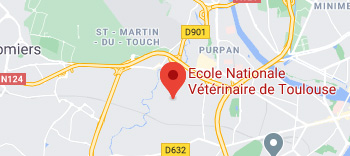ENVT’s activities have for several years been part of a quality-based management system defined by a strong commitment and a quality policy statement.
quality policy statement
As part of a continuous improvement process, this approach allows :
- to improve the internal running of the School in order to increase the level of satisfaction of all stakeholders;
- to enhance the know-how and competence of the staff;
- to meet the needs and requirements of the ministry in charge, the public and its partners;
- d- To ensure recognition of the quality of its teaching and research activities, in particular by the Haut conseil de l’évaluation de la recherche et de l’enseignement supérieur (HCERES) and by the European Association of Establishments for Veterinary Education (EAEVE).
The development of the quality-based approach is also supported by the deployment of managerial techniques such as facilitation through collective intelligence and the organisation of workshops using collaborative tools.
ENVT's quality-based approach
The quality-based approach is now anchored in several sectors and activities at ENVT, particularly in research activities :
- The research units UMR 1225 IHAP, UMR 1331 TOXALIM and UMR 1436 INTHERES comply with INRAE quality standards.
- UMR 1388 GenPhySE/chromosome control platform complies with ISO 9001 methodology;
- The central medical biology laboratory is accredited by the ECVCP (European College of Veterinary Clinical Pathology).
- The experimental and comparative histopathology laboratory (LabHPEC) is GLP accredited (good laboratory practice).
The continuing education service is listed in the French DataDock system.
Finally, ENVT is a member of several quality associations, allowing it to work in a network of continuous improvement, regulatory monitoring and innovation. At the European level, it is a member of the RAQ (Research Quality Association) and at the national level of the SOFAQ (Société Française d’Assurance Qualité).
At the regional level, ENVT participates in the work of the quality clubs of Midi-Pyrénées higher education establishments (QEES club) and of the veterinary professional organisations (Qualitevet) whose productions are useful in the fields of teaching and research.





















































































































